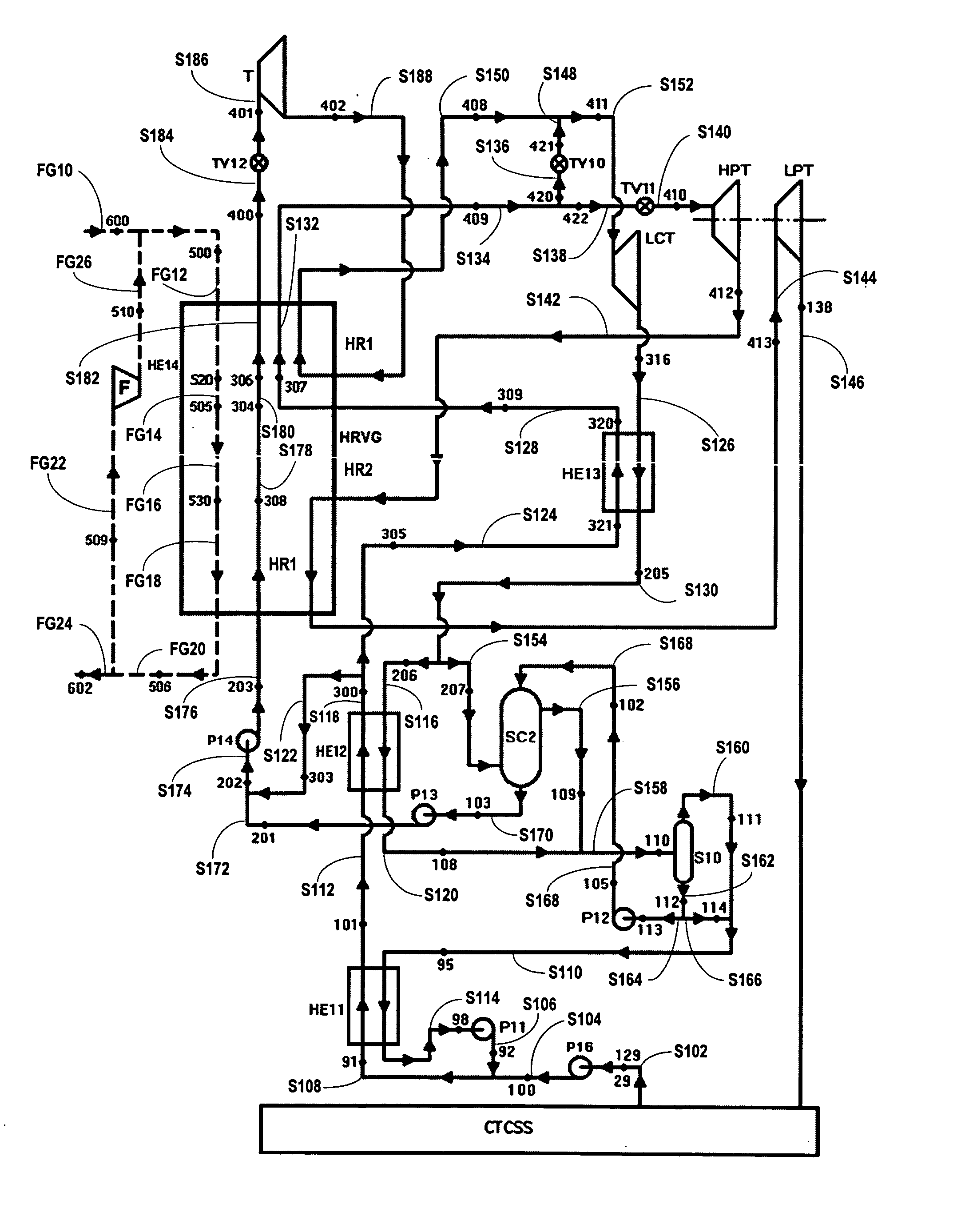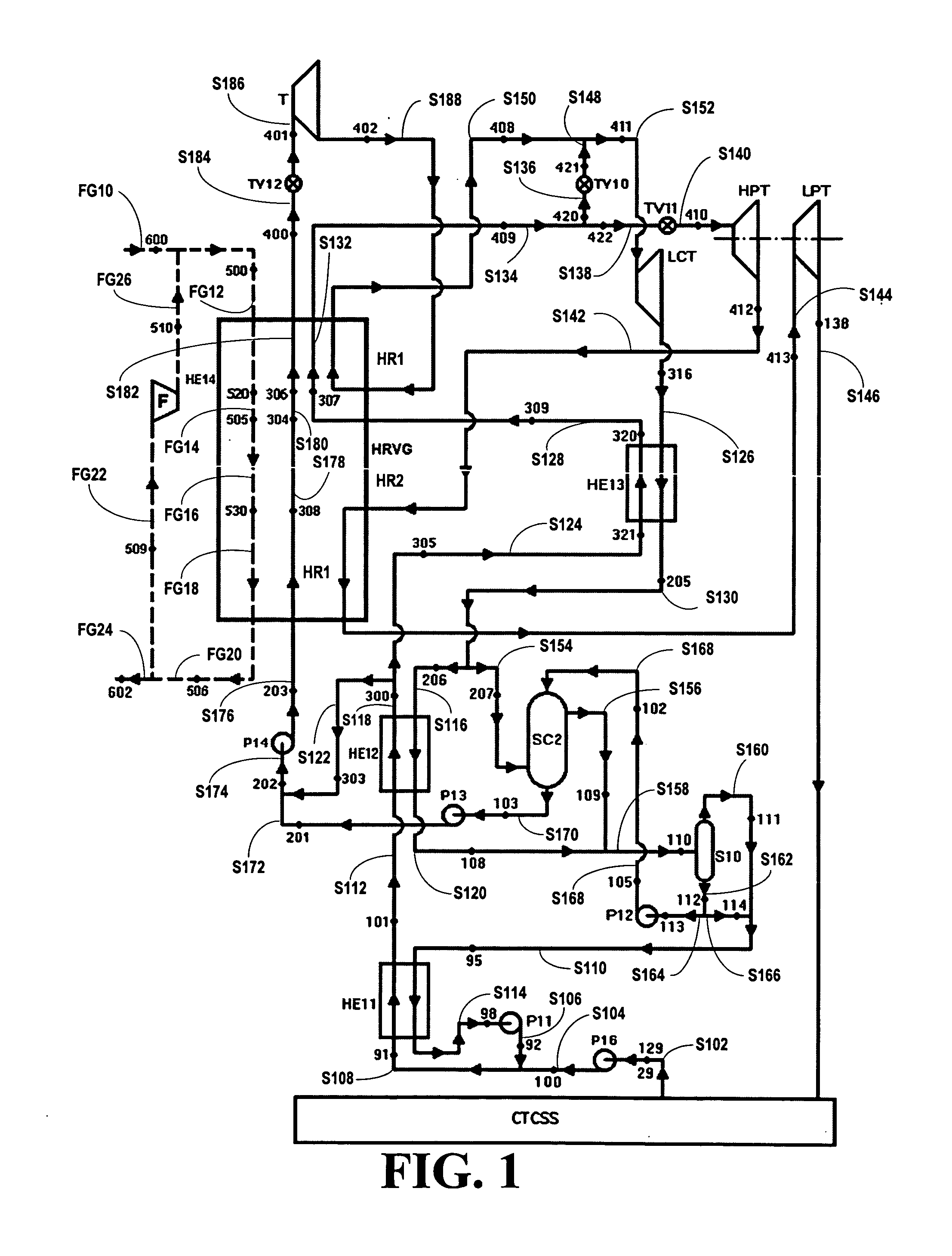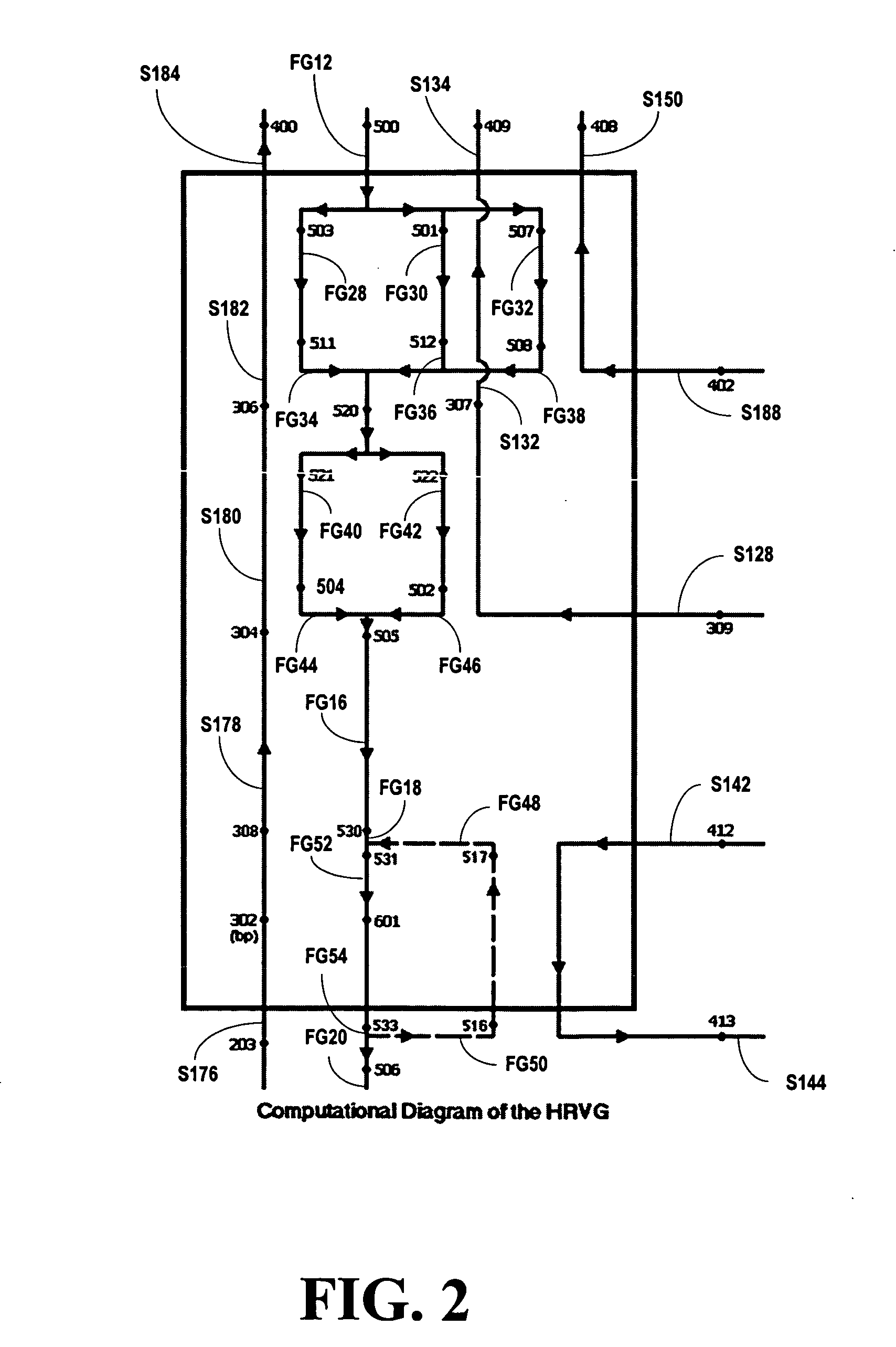System and process for base load power generation
- Summary
- Abstract
- Description
- Claims
- Application Information
AI Technical Summary
Benefits of technology
Problems solved by technology
Method used
Image
Examples
first embodiment
of the System and Method of This Invention
[0038] Referring now to FIG. 1, a schematic block diagram of one embodiment of the system of this inventions, generally 100, is shown. In the system 100, a first fully condensed rich working fluid stream S102 having parameters as at a point 29, where the stream S102 has a high concentration of the low boiling component of the multi-component working fluid, i.e., the stream S102 comprises a rich working fluid stream, exits from a Condensation and Thermal Compression Subsystem CTCSS, where it was fully condensed. The Condensation and Thermal Compression Subsystem CTCSS can be a simple condenser, but is generally a more complex subsystem as described below. The stream S102 having the parameters as at the point 29, redesignated as a point 129, is then pumped by a pump P16, to a desired higher pressure, to form a higher pressure fully condensed rich working fluid stream S104 having parameters as at a point 100. Although the stream S102 having the...
second embodiment
of the System and Method of This Invention
[0057] Referring now to FIG. 3, an alternate embodiment of the system of this invention, generally 300, is shown. Although this is a second embodiment, the point and stream designations used in the first embodiment of FIG. 1 are used, when appropriate, in the description of this system 300. In the system 300, a first fully condensed rich working fluid stream S102 having parameters as at a point 29, where the stream S102 has a high concentration of a low boiling component of the multi-component working fluid, exits a Condensation and Thermal Compression Subsystem CTCSS, where it was fully condensed. The Condensation and Thermal Compression Subsystem CTCSS can be a simple condenser, but is generally a more complex subsystem as described below. The stream S102 having the parameters as at the point 29, redesignated as a point 129, is then pumped by a first pump P16, to a desired higher pressure, to form a first higher pressure rich working fluid...
PUM
 Login to View More
Login to View More Abstract
Description
Claims
Application Information
 Login to View More
Login to View More - R&D
- Intellectual Property
- Life Sciences
- Materials
- Tech Scout
- Unparalleled Data Quality
- Higher Quality Content
- 60% Fewer Hallucinations
Browse by: Latest US Patents, China's latest patents, Technical Efficacy Thesaurus, Application Domain, Technology Topic, Popular Technical Reports.
© 2025 PatSnap. All rights reserved.Legal|Privacy policy|Modern Slavery Act Transparency Statement|Sitemap|About US| Contact US: help@patsnap.com



